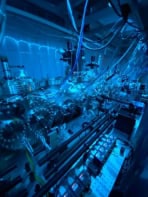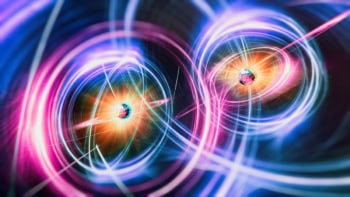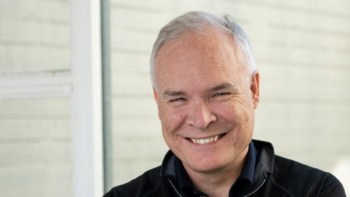Not all physicists think time started with the Big Bang -- it could have just been a transition from a collapsing to an expanding universe. But now Martin Bojowald of Pennsylvania State University in the US has studied a model of "loop quantum gravity" to show that even if such a pre-Big Bang universe did exist, it would be impossible to grasp certain aspects of it (Nature Physics advance online publication).
Many think of the Big Bang as the “fireball” that triggered the immensely hot, dense state roughly 14 billion years ago to expand into the vast cosmos we see today. But in classical physics there’s a problem: as we extrapolate our models further into the past, they predict the Big Bang as a moment of infinite energy and temperature, called a singularity. Classical models can get to within a hundred-billionths of a second of this singularity, but their equations lose all meaning much before.
To understand the universe at earlier times, physicists need to settle on a theory that can unite the three stronger forces of nature – electromagnetism and the strong and weak forces – with gravity. This means they must reconcile Einstein’s theory of gravity – general relativity – with quantum mechanics, and thus create a quantum theory of gravity.
One such proposed theory is “loop quantum gravity” (LQG), which assumes that time proceeds in finite quantum “jumps”. In LQG, the energies that classically take arbitrarily high values are instead limited by an upper bound. “I realized about six years ago that loop quantum gravity can avoid the singularity, but the equations I used were still too complicated to show the precise form of the quantum state,” Bojowald told Physics Web.
The loss of the singularity, however, opens up the possibility that the Universe could have had a state that extended back in time before the Big Bang. This would mean that the Big Bang did not mark the beginning of the universe, but was rather a transition – or a “bounce” – of the universe from a prior collapsing state to our familiar expanding one.
Now Bojowald has explored whether we might be able to glimpse such a pre-Big Bang universe. He began with a model based on LQG that he devised earlier this year in which the universe’s state is defined by a few parameters, including how it is currently expanding, the amount of matter present and the strength of gravity. By progressively simplifying the model, he was able to find equations of the state of the universe that were exactly solvable at the time of the Big Bang.
Living in the post-Big Bang era, we enjoy a fairly smooth space-time. But before the Big Bang, if such a time existed, there is the possibility that the universe was in a highly-fluctuating quantum state in which even the usual concept of time might have little meaning. Bojowald has found that the sheer size of our present universe gives rise to a fundamental uncertainty in his equations that prevents us from ever learning how big quantum fluctuations before the Big Bang were.
This means that we may not, for example, perform backwards calculations to trace back all aspects of the universe prior to the Big Bang – what he calls “cosmic forgetfulness”. “The fact that some properties cannot be predicted completely was very unexpected,” he said. Nevertheless, Bojowald added that aspects associated with classical behaviour, such as the universe’s size and contraction rate, could in principle be determined.
But John Barrett, a quantum-gravity theorist from the University of Nottingham in the UK, warns that LQG is not widely-adopted among theorists, which could put Bojowald’s conclusions on shaky ground. “LQG is a partially-baked cake,” he said. “There are some aspects one would need to make a complete quantum theory of gravity that just aren’t there yet.”



